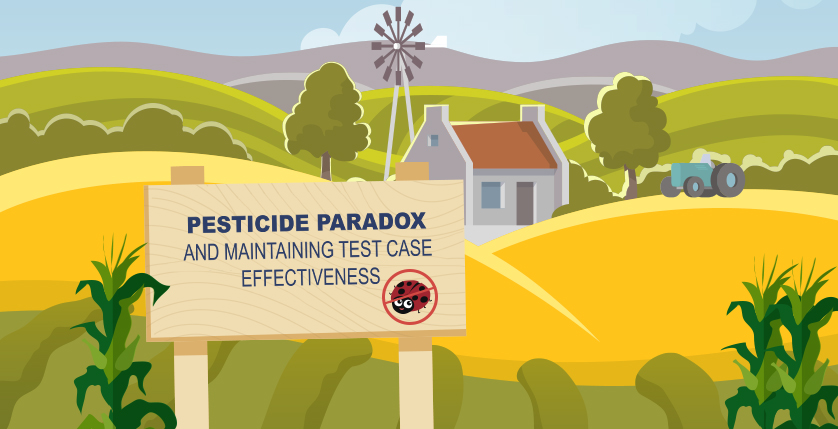What is the pesticide paradox?
On most projects, there are situations in which the more we test a product, the more immune it becomes to the bugs we try to find using our test suites. After the same tests are repeated over and over again, you eventually stop finding new bugs. In such a situation, the functionality, even though described in detail in test cases, may not be tested thoroughly enough and users may find serious bugs.
Just like insects, the software bugs under test can develop resistance to the same pesticide, in other words, form immunity to existing test cases. This phenomenon is known as the pesticide effect. The term was coined about 30 years ago by American engineer Boris Baser. The essence of this effect is that using the same methods repeatedly becomes ineffective over time, as the pests that survive become immune.
Why do test cases lose their relevance over time?
Of course, the simplest reasons can be situations where changes are made to the project, new functionality is added, or the old one is optimized. In this case, test cases need to be updated even without taking into account the pesticide effect. But even if the project doesn't change much, it is still necessary to update the test suite to find new bugs, which are no doubt present in any product.
There are several reasons why the same set of test cases stops helping find bugs.
First, it is simply impossible to initially predict all available scenarios for testing. Even if the software under test is quite simple, it is still unrealistic to write an exhaustive number of tests that will find all the bugs. Not to mention complex systems with a huge set of incoming data, dependencies, and scenarios. That is why any new ideas on how to test a product should be checked and added to the tester's arsenal.
Second, the tester gets used to the project over time and becomes familiar with all the problem areas of the tested software, and there is a risk that they might miss defects or even mistake the defect for a previously agreed functionality feature. When a tester has been working on a project for six months or more and needs to repeatedly perform regression testing and go through the same set of tests, it's not an easy task to keep a fresh perspective on the product.







